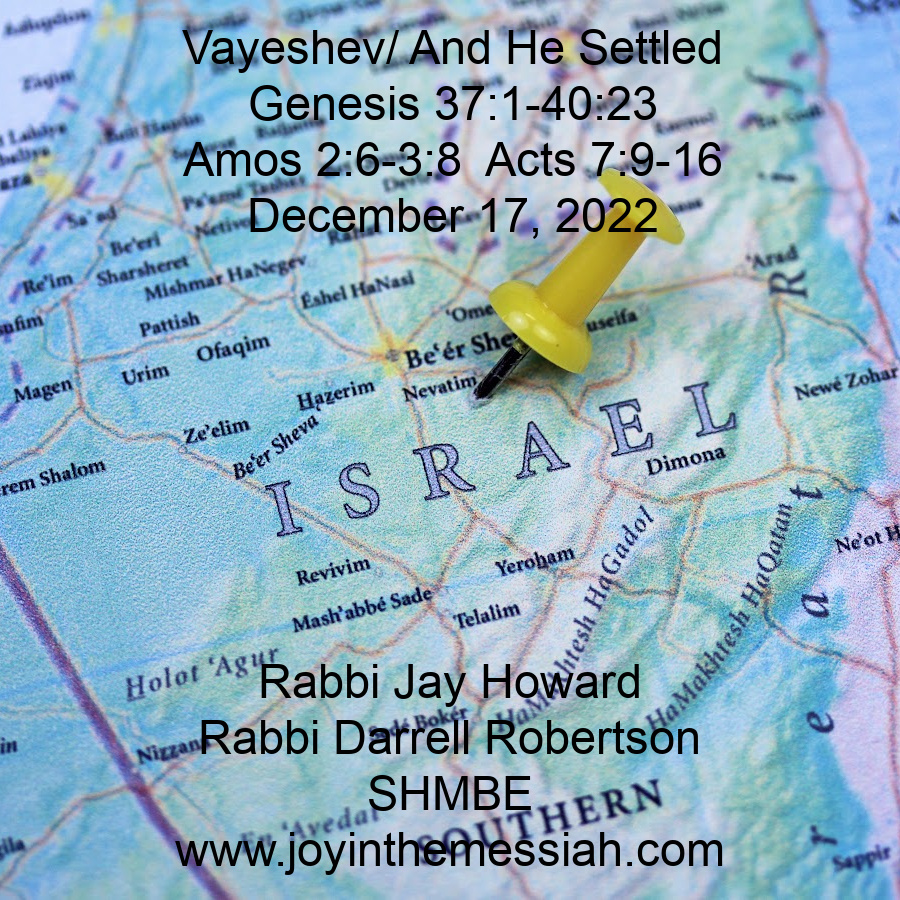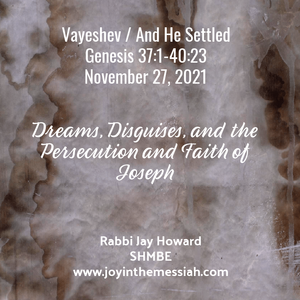
Our lives are full of ascents and descents. Without the descents, there wouldn’t be any reason for an ascent which means there wouldn’t be any reason for us to strive, to try harder, to seek change, to seek God’s mercy and His perfect will in our lives. Ascents seem to bring us slowly towards the perfectness that Yeshua expects us to strive for in Matthew 5:48 ‘Be perfect therefore as your Heavenly Father is perfect.’ This is a remez, a connection to Leviticus 11:45, - ‘For I am the LORD who brought you up from the land of Egypt to be your God; thus you shall be holy, for I am holy.' (Also Leviticus 19:2, Leviticus 20:26, 1 Peter 1:15-16 and Deuteronomy 23:14).
With each descent, we strive to ascend to a higher place and a higher season. Often in our upward progression that God has us on, there will contain a descent that holds the hidden link to a major ascent. We may not be able to visualize it as we are in that descent, but in time we will understand His plan.
Every day people around the world endure hardships and difficulty. During these descents and challenging times, we may feel tremendous pain, whether spiritual, psychological, emotional or physical and in our darkest hour, we may even feel like giving up. We need to see these descents or challenges not as roadblocks of despair, but rather as the very thing that might propel us towards the mercy, grace and will of God. It is when we fall into the desires of ascent we fail to fully understand and appreciate the work that God is doing in us during our descents. Remember, in Genesis 40:23 Joseph may have been forgotten by man, but he was never forgotten by Elohim. ‘I will never leave you nor forsake you.’
Joshua 1:5 ‘As I was with Moses, so I will be with you. I will never leave you nor forsake you.’
Hebrews 13:5 ‘…because God has said, “Never will I leave you, never will I forsake you.” So we say with confidence, “The Lord is my helper, I will not be afraid, What can man do to me?”

-
0:00/52:12
-
0:00/24:13
Vayeshev / And He Lived
Genesis 37:1-40:23
Amos 2:6-3:8
Acts 7:9-16
This Torah portion opens with Joseph’s two dreams of his future greatness. He relays them to his father and brothers, inciting the jealousy that eventually lands him in Egypt. ‘So he told it to his father and his brothers; and his father rebuked him and said to him, “What is this dream that you have dreamed? Shall your mother and I and your brothers indeed come to bow down to the earth before you?” 11 And his brothers envied him, but his father kept the matter in mind.’ Genesis 37:10-11.
After the brothers leave for the fields, Israel sends Joseph to find them. Seemingly, out of nowhere in Genesis 37:15 a man appears to Joseph, directing him to the place of the brothers.
The sages teach that this was the angel Gabriel, who in Daniel 9:21 is referred to as the man Gabriel. ‘…yes, while I was speaking in prayer, the man Gabriel, וְהָאִ֣ישׁ whom I had seen in the vision at the beginning, being caused to fly swiftly, reached me about the time of the evening offering.’
Joseph was directed by God to fulfill the plan that God had for him. As we too are directed to fulfill the plan that God has for us, in spite of ourselves. Jeremiah 29:11-14 ‘For I know the thoughts (plans) that I think toward you, says the Lord, thoughts of peace and not of evil, to give you a future and a hope. 12 Then you will call upon Me and go and pray to Me, and I will listen to you. 13 And you will seek Me and find Me, when you search for Me with all your heart. 14 I will be found by you, says the Lord, and I will bring you back from your captivity; I will gather you from all the nations and from all the places where I have driven you, says the Lord, and I will bring you to the place from which I cause you to be carried away captive.’
Joseph is stripped of the coveted cloak, pushed into a pit and eventually sold to the Midianites and ends up as the slave of Potiphar. The brothers lie to Israel, thus beginning the long painful events in their lives.
In Genesis 38 there is the encounter between Judah and Tamar. After their encounter, it is told to Judah that she is three months pregnant. He assumed that she had had a physical relationship with another man while bound in law to his son Shelah. She had committed adultery, for which the punishment was death. Tamar was brought out to face her sentence where she says: “I am pregnant by the person to whom these objects belong.” Judah realized what had happened and proclaimed, “She has been more righteous than I, because I did not give her to Shelah my son.” And he never knew her again.’ Genesis 38:26.
We learn from this that Judah is the first person in the Torah to explicitly admit that he was wrong. This noble and strong character is again shown to us as he, the brother who proposed selling Joseph as a slave – becomes the man willing to spend the rest of his life in slavery so that his brother Benjamin can go free.
But what about Tamar? We learn a lot about her character from her actions. She had taken a huge risk by becoming pregnant, and she was almost killed for it. Her motives were noble: to ensure a child by her late husband. But she also took great care to avoid Judah being put to shame. Only he and she knew what had happened. Judah could acknowledge his error without loss of face. It was from this episode that the Sages teach that she did not want to embarrass him and say, “From you I am pregnant,” but, “From the man to whom these belong.” She said, “If he confesses by himself, let him confess, and if not, let them burn me, but I will not embarrass him.” From this the sages teach “It is better for a person to be cast into a fiery furnace than to embarrass his fellow in public.” In doing so we let another’s honor rise above our own.
Like the Moabite, Ruth, Tamar another heroic non-Jewish woman became the ancestor of David, Israel’s greatest King.
What comes of Joseph, the younger, favored brother who tells of dreams in which he will rule over his father and brothers? He is directed by ‘a man’ to find the brothers and bring back a report. This never happens, for he is stripped of the famous cloak, cast into an empty, waterless pit and sold, ending up in Egypt as the slave of Potiphar. Finding favor from Potiphar, Joseph is made overseer of his house, which collides him with Potiphar’s wife, thus Joseph ends up in prison.
We see even then that Adonai was with him. ‘But the Lord was with Joseph and showed him mercy, and He gave him favor in the sight of the keeper of the prison. 22 And the keeper of the prison committed to Joseph’s hand all the prisoners who were in the prison; whatever they did there, it was his doing. 23 The keeper of the prison did not look into anything that was under Joseph’s authority, because the Lord was with him; and whatever he did, the Lord made it prosper.’ Genesis 39:21-23.
Vayeshev ends with Joseph’s interpretations of the butler and baker’s dreams.
It may seem that the participants in Vayeshev are making their own way. But as we read and study, we learn that it was the Divine Will of Adonai carried out in each one as His predestined plan. This is true of our lives, too. Even when we make poor choices, which we all do, He is there to redirect our paths according to Himself. Joseph and Judah are perfect examples of how we can continue to align our ways with Adonai, humble ourselves, receive favor and live the life we were supposed to. We can change our path to His path. We can admit mistakes, give glory to The Father in all things, and understand that His ways are the perfect ways.

-
0:00/56:31
-
0:00/1:15:34
